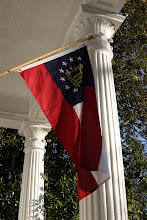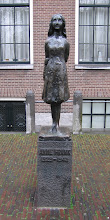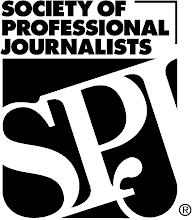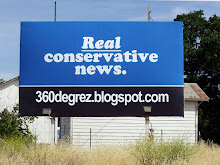 Greek police fire tear gas on austerity-plan protesters
Greek police fire tear gas on austerity-plan protestersThe strike brought the country to a virtual standstill Thursday, grounding all flights and bringing public transport to a halt. State hospitals were left with emergency staff only and all news broadcasts were suspended as workers walked off the job for 24 hours to protest spending cuts and tax hikes designed to tackle the country's debt crisis.
Riot police fired volleys of tear gas to disperse protesters throwing rocks and Molotov cocktails in sporadic clashes throughout the demonstration, including outside Parliament. Strikers and protesters banged drums and chanted slogans such as "no sacrifice for plutocracy," and "real jobs, higher pay." People draped banners from apartment buildings reading: "No more sacrifices, war against war."
The demonstrators included a group of about 100 back-clad youths in crash helmets and ski masks, some of whom smashed windows of a department store and bank, and sprayed riot police with brown paint. Shopkeepers along the demonstration route scrambled to roll down their shutters, while a few blocks away, people sat at outdoor restaurants, continuing their meals.
German schools angry over church abuse scandal
The uproar came a day before Germany's highest bishop was to meet Pope Benedict XVI in Rome.
Germany's top education representative, Ludwig Spaenle, blasted the church for failing to report cases of physical and sexual abuse in a timely fashion.
"Internal church guidelines as well as school authority directives to report criminal offenses instantly have been circumvented," Spaenle, who is president of Germany's 16 education ministers, was quoted as saying by the Passauer Neue Presse newspaper. Church officials need to put "everything on the table."
Spaenle and his colleagues set up a task force to come up with a new strategy against sexual abuse in schools.
"For us there is 'zero tolerance' for the perpetrators," he said in a statement Thursday.
At least 170 former students from Catholic schools in Germany have come forward with claims of sexual abuse recently and others have spoken of physical abuse.
Wolfgang Blaschka, a 52-year-old designer, told The Associated Press that corporate punishment was the rule, not the exception, when he was a student at the Etterzhausen school just outside Regensburg.
"It was a climate of terror and oppression," he told the AP, saying one principal grabbed him by the hair and "lifted me into the air."
Blaschka spent two years at the school before joining the prestigious Regensburger DomspatzenRatzinger, the pope's brother, from 1964-1994. Choir in 1968, which was led by the Rev. Georg
Aftershock rattles Chile during inauguration
The strongest aftershock, with a magnitude of 6.9, was nearly as strong as the quake that devastated Haiti's capital on Jan. 12. There were no immediate reports of damages or injuries.
The Chilean Navy issued a tsunami warning while the U.S. Pacific Tsunami Warning Center said the aftershocks were too small to cause dangerous waves beyond Chile's central coast.
President Sebastian Pinera was inaugurated at a congressional building in coastal Valparaiso before the building was evacuated as a precaution. The seven aftershocks strongly swayed buildings, shook windows and sent frightened Chileans streaming into the street.
The magnitude-6.9 aftershock is the strongest since the day of the Feb. 27, magnitude-8.8 quake. It occurred along the same fault line, said geophysicist Don Blakeman at the U.S. Geological Survey in Golden, Colorado. The USGS initially estimated the aftershock's magnitude at 7.2.
US Federal Court OKs Reciting Pledge Of Allegiance
A federal appeals court in San Francisco upheld the use of the words "under God" in the Pledge of Allegiance and "In God We Trust" on U.S. currency, rejecting arguments on Thursday that the phrases violate the separation of church and state.
The 9th U.S. Circuit Court of Appeals panel rejected two legal challenges by Sacramento atheist Michael Newdow, who claimed the references to God disrespect his religious beliefs.
"The Pledge is constitutional," Judge Carlos Bea wrote for the majority in the 2-1 ruling. "The Pledge of Allegiance serves to unite our vast nation through the proud recitation of some of the ideals upon which our Republic was founded."
The same court ruled in Newdow's favor in 2002 after he sued his daughter's school district for having students recite the pledge at school.
That lawsuit reached the U.S. Supreme Court in 2004, but the high court ruled that Newdow lacked the legal standing to file the suit because he didn't have custody of his daughter, on whose behalf he brought the case.
So Newdow, who is a doctor and lawyer, filed an identical challenge on behalf of other parents who objected to the recitation of the pledge at school. In 2005, a federal judge in Sacramento decided in Newdow's favor, ruling that the pledge was unconstitutional.
In a separate 3-0 ruling Thursday, the appeals court upheld the inscription of the national motto "In God We Trust" on coins and currency, saying that the phrase is ceremonial and patriotic, not religious.
US Gov't May Seek More Authority On Vehicle Safety
Government vehicle safety regulators may seek greater authority to investigate defects in cars and trucks and are weighing a range of new safety requirements in response to Toyota's recall of more than 8 million vehicles over brake and acceleration problems.
David Strickland, head of the National Highway Traffic Safety Administration, said Thursday his agency will take a "hard look" at the power it has to set safety standards for automakers. Current authority, acquired in the 1960s and 1970s, may not be enough to oversee the technology used in modern vehicles, he said.
But one lawmaker at a House hearing said the agency's problems seem to have more to do with "ineptitude" and lack of money than with insufficient powers. Rep. John Dingell, D-Mich., said the agency's response to the Toyota recalls had been sluggish after "years of stagnation in funding."
Strickland told the panel it was unclear whether the agency can regulate "in a way that allows the auto industry to build and sell safe products that the consumer wants to drive."
The government may also require automakers to include brake override systems, a fix intended to prevent the type of runaway car incidents that some Toyota drivers have described, Strickland said. It would ensure that a driver stepping on the brakes can slow the vehicle even if the gas pedal is stuck or malfunctioning.
Strickland said the agency will consider mandating event data recorders, or vehicle "black boxes," which typically record data about whether the brake or accelerator pedals were depressed at the time of a crash. About 60 percent of vehicles already have the technology. He also vowed to look closely at push-button start and stop technologies to ensure that drivers can easily turn their cars off during an emergency.
Thursday's hearing of a panel of the House Energy and Commerce Committee was the fourth in Congress related to Toyota's massive recalls for problems with faulty gas pedals and brake problems. The committee was focused on the transportation safety agency's oversight of the auto industry, which has been criticized for being too lax on automakers.
Under questioning from lawmakers, Strickland defended his agency's handling of the Toyota recalls and took exception to criticism that it is a "lapdog" of the industry, noting it opened eight investigations into reports of sudden unintended acceleration in Toyotas.
"I don't see Toyota as an indicative example of failure," Strickland said. "I see it as NHTSA doing its job."
Along with reviewing its authority, Strickland said, his agency is seeking 66 new employees to bolster its safety work. The agency will also review its ethics standards following claims that many former staffers head directly to automakers after they leave their jobs.
Congress is considering legislation following Toyota's recalls. Strickland's agency has tied 52 deaths to crashes allegedly caused by accelerator problems, and received new complaints from owners who had their cars fixed and said their vehicles suddenly accelerated afterward.
The Transportation Department has defended its work in policing the auto industry, noting that it dispatched safety officials to Japan late last year to urge the company to take safety concerns seriously. Toyota President Akio Toyoda recently met Transportation Secretary Ray LaHood and told him the company would "advance safety to the next level."
Strickland said his agency receives more than 30,000 complaints a year and received 10,000 complaints in February alone. It has a staff of 57 people to investigate potential defects. He said the program has worked well in finding "unreasonable risks."
But a former administrator of the agency, Joan Claybrook, testified that it is understaffed, underfunded and lacks the power to hold automakers accountable. Claybrook, who headed the agency during the Carter administration, proposed raising fines on auto companies for withholding information involving recalls. She also faulted the agency over secrecy involving data about potential defects.
The agency has been investigating potential electronic problems in Toyota cars and trucks. Toyota has said it has found no evidence of problems with its vehicles' electronic throttle controls but is also studying the issue.
Automakers point to declines in highway fatalities and the use of safety technology such as anti-rollover electronic stability control as signs of safety improvements on the road. "By every single measure, these vehicles are dramatically safer," said former Rep. David McCurdy, D-Okla., president of the Alliance of Automobile Manufacturers.
Crisis or not, Congress is considering the biggest auto safety changes since the TREAD Act, which was approved in 2000 to help the government spot safety defects more quickly following a massive Bridgestone/Firestone Inc. tire recall.
Credit Card Users Not So Responsible After All?
With unemployment high and personal wealth diminished, how was it that strapped consumers were paying down their credit card debt last year? It turns out they probably weren't.
The bulk of 2009's drop in credit card debt instead came because banks were forced to write off loans consumers failed to pay, according to an analysis of Federal Reserve data.
Loans are typically charged off by banks once they're 180 days past due, under the assumption that the debt won't be repaid.
In 2009, banks wrote off a record $83.27 billion in credit card debt. A study by consumer credit research site CardHub.com found that accounts for the bulk of the of $93.2 billion drop in consumer card balances reported by the Fed for last year.
"If you just look at the numbers, you think, 'Oh my goodness, there was a big decrease in credit card debt,'" said Odysseas Papadimitriou, CEO and founder of CardHub.com.
But Papadimitriou said it didn't add up that consumers could make such a big dent in debt while under the financial pressure Americans faced last year.
The Federal Reserve's reports on outstanding consumer loans don't tease out the amount charged off by banks. By that measure, credit card borrowing fell for 16 straight months through January, suggesting consumers have been chipping away at balances and spending less.
When you consider how much banks are being forced to forsake in bad loans, however, consumers' ability to pay off balances doesn't appear as rosy.
The only time consumers truly paid down their debt was in the first quarter of last year, the CardHub.com study finds. During those three months, card balances fell by $46.9 billion, excluding the $17.59 billion banks wrote off.
After that, card balances either remained steady or rose.
The charge-off rate on credit card loans spiked dramatically in the downturn, hitting a record 10.1 percent in the third quarter of 2009.
The rate eased to 9.4 percent for the year's final three months. By comparison, the rate was 4 percent in the fourth quarter of 2006, a year before the downturn began.
The situation may only get worse for banks. Moody's Investor Service expects the charge-off rate to top out at 12 percent later this year. Charge-off rates vary depending on the bank, however.
At Bank of America, the annual net charge-off rate for U.S. cards declined to 13.2 percent in January from 13.5 percent in December, while Capital One said its rate rose to 10.41 percent in January from 10.14 percent in December.
Gail Cunningham, of the National Foundation for Credit Counseling, said she's not surprised if consumers are still leaning on credit cards, especially given the high unemployment rate.
AP; UPI, Sky News; Wall Street Journal.































No comments:
Post a Comment